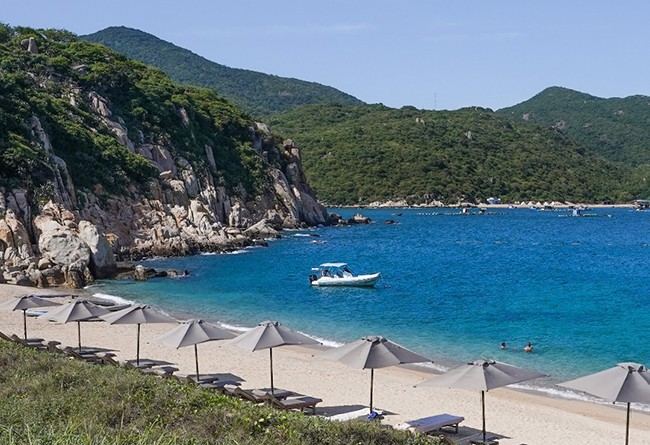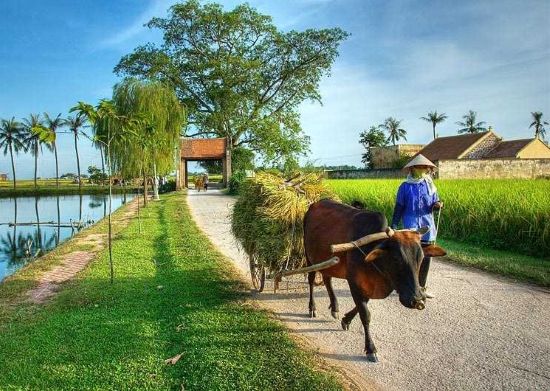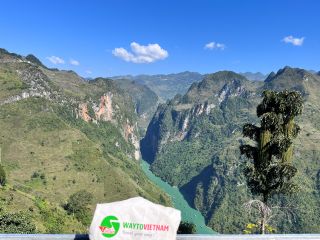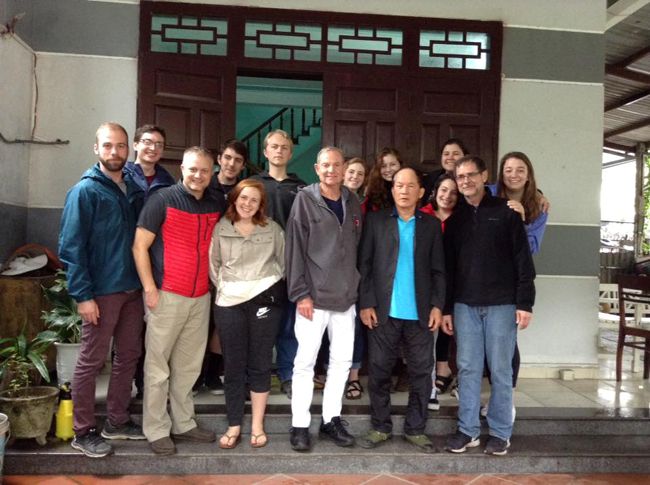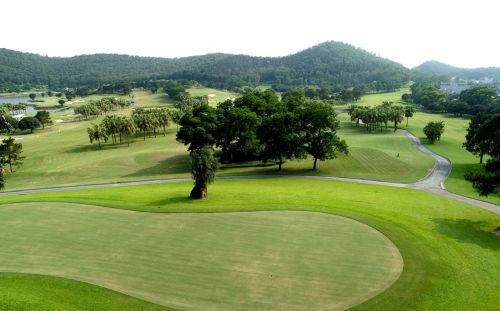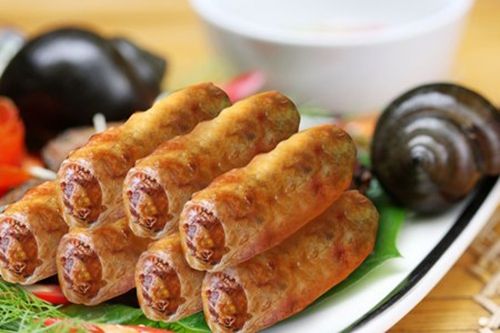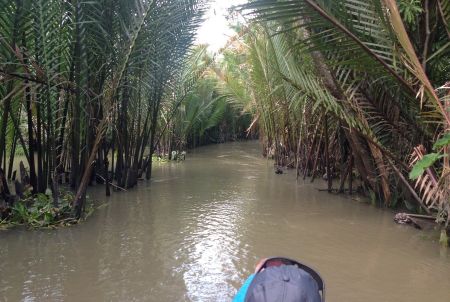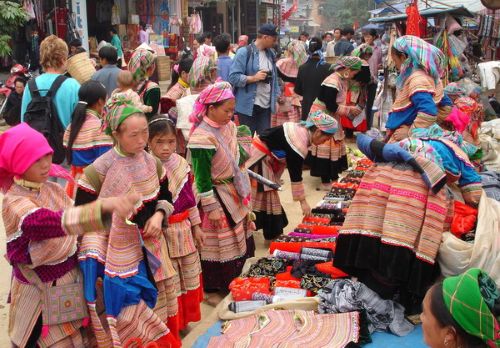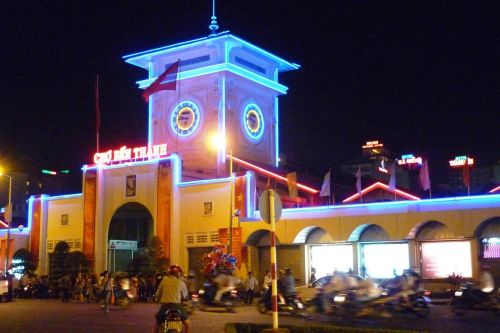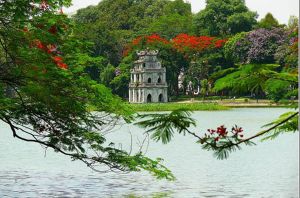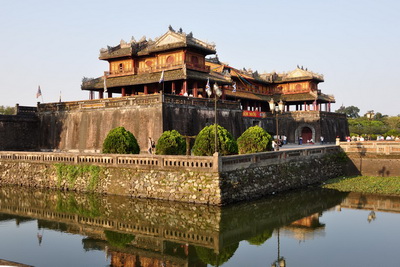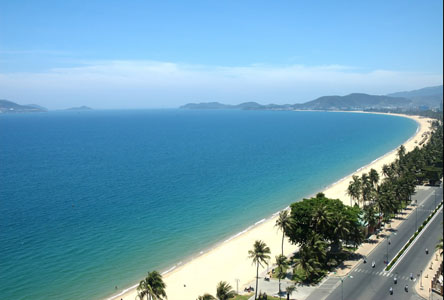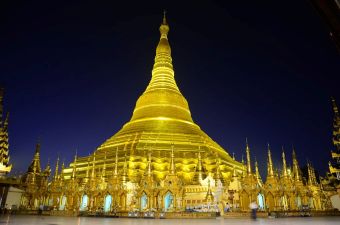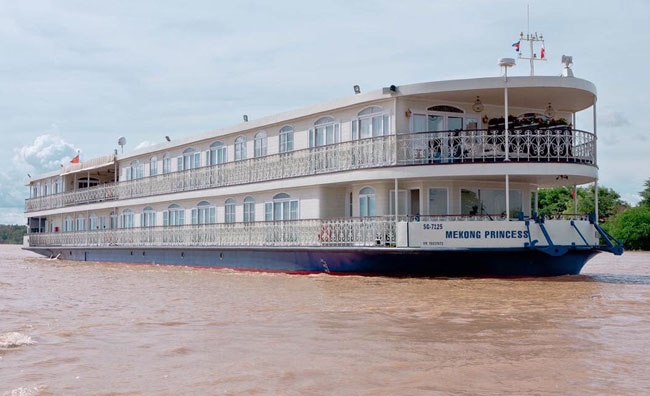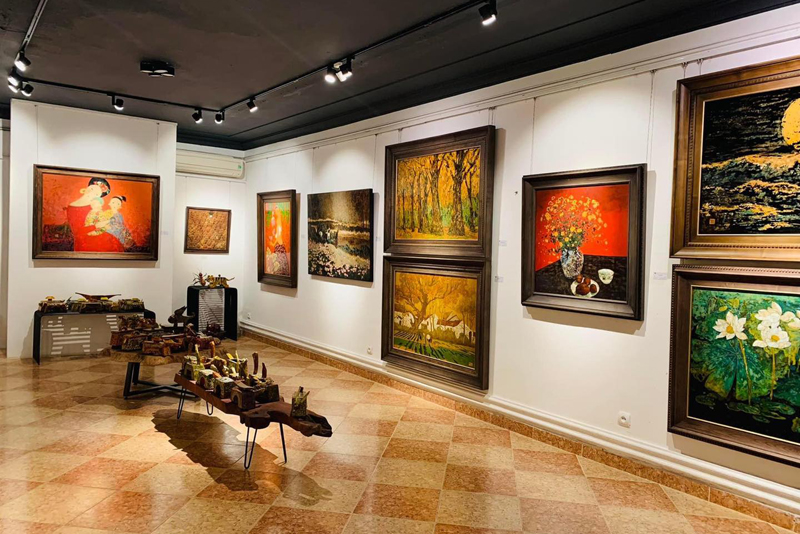As busy as Ben Thanh Market
What Saigonese know and don't know about their city's most familiar market-Ben Thanh Market
"If we don't have it, you don't need it." The two authors of Lonely Planet's travel guide to Vietnam use this sentence to describe Ben Thanh Market. "The legendary slogan of U.S. country stores applies equally well here," they say. In Vietnam, a song composer compared the market with the hustle and bustle of life. "Life is as busy as Ben Thanh Market," he wrote.
Name
The Ben Thanh management board says the name stems from the fact that at the beginning the market was near a wharf (bến) of Gia Dinh Citadel (thà nh).
History
Almost a century ago, in 1907, the construction of Ben Thanh Market was approved by the city council. Construction was under way in 1912 and it was completed in 1914. During World War II, the market was bombed by the Allied forces and heavily damaged. It was given a revamp in 1950.
Location
Ben Thanh Market has the best location among all the markets in HCM City. On an area of over 13,000 square meters, the market is separated from the adjacent blocks by four streets. Its north side borders Le Thanh Ton Street, the east side Phan Boi Chau and the west side Phan Chu Trinh. The south side faces Quach Thi Trang Square.
Gates
The market has four main gates and 12 subordinate ones. The main gates are named after their directions-east, west, south and north.
Goods
Vietnamese have an idiom that says "thöôïng vaøng haï caùm" (which literally means from gold to bran). All the things between the two are available at Ben Thanh Market. In addition, up to a hundred stalls sell dishes from throughout Vietnam.
Stall layout
The arrangement of the 1,500 stalls and shops are too complicated to be described briefly.
Prices and bargaining
Shop owners are required to show prices for their goods. However, shoppers should bargain to get lower prices. In many cases, the prices shown are not the real prices. The management board says price competition will not allow a shop to quote prices much higher than those their next-door competitors offer.
Shoppers
Not all people go to Ben Thanh Market to shop. Some go there out of curiosity. Foreign visitors account for a considerable proportion of the visitors. The management board says every day the market has 15,000 visitors. Japanese tourists make up the bulk of foreign shoppers.
Languages
Foreign visitors can use English to communicate with shopkeepers. Some of the sellers can speak French, Chinese, Japanese or Korean. A foreign shopper shouldn't worry about the language barrier because every shop there has a calculator. So, bargaining is done by using the calculator.
Security
During the past few years, Ben Thanh Market has become a safe place. Harassment, quarrelling, pickpocketing and robbery seldom occur inside the market. Its 40-strong security force is ready to intervene.
Fire prevention
A fire alarm and firefighting system was installed recently. The market has reservoirs and more than 100 fire extinguishers at different places. Four backup light columns, powered by separate sources, are installed for emergencies. The market has a total of 16 gates for entry and exit.
Restrooms
There are two rows of restrooms, that is, toilets, inside the north side of the market.
Future
The market will have a basement in the future to increase the area for stalls. Parks will be constructed on surrounding blocks to allow visitors to visit the market and stroll in the adjacent pedestrian quarters.
Name
The Ben Thanh management board says the name stems from the fact that at the beginning the market was near a wharf (bến) of Gia Dinh Citadel (thà nh).
History
Almost a century ago, in 1907, the construction of Ben Thanh Market was approved by the city council. Construction was under way in 1912 and it was completed in 1914. During World War II, the market was bombed by the Allied forces and heavily damaged. It was given a revamp in 1950.
Location
Ben Thanh Market has the best location among all the markets in HCM City. On an area of over 13,000 square meters, the market is separated from the adjacent blocks by four streets. Its north side borders Le Thanh Ton Street, the east side Phan Boi Chau and the west side Phan Chu Trinh. The south side faces Quach Thi Trang Square.
Gates
The market has four main gates and 12 subordinate ones. The main gates are named after their directions-east, west, south and north.
Goods
Vietnamese have an idiom that says "thöôïng vaøng haï caùm" (which literally means from gold to bran). All the things between the two are available at Ben Thanh Market. In addition, up to a hundred stalls sell dishes from throughout Vietnam.
Stall layout
The arrangement of the 1,500 stalls and shops are too complicated to be described briefly.
Prices and bargaining
Shop owners are required to show prices for their goods. However, shoppers should bargain to get lower prices. In many cases, the prices shown are not the real prices. The management board says price competition will not allow a shop to quote prices much higher than those their next-door competitors offer.
Shoppers
Not all people go to Ben Thanh Market to shop. Some go there out of curiosity. Foreign visitors account for a considerable proportion of the visitors. The management board says every day the market has 15,000 visitors. Japanese tourists make up the bulk of foreign shoppers.
Languages
Foreign visitors can use English to communicate with shopkeepers. Some of the sellers can speak French, Chinese, Japanese or Korean. A foreign shopper shouldn't worry about the language barrier because every shop there has a calculator. So, bargaining is done by using the calculator.
Security
During the past few years, Ben Thanh Market has become a safe place. Harassment, quarrelling, pickpocketing and robbery seldom occur inside the market. Its 40-strong security force is ready to intervene.
Fire prevention
A fire alarm and firefighting system was installed recently. The market has reservoirs and more than 100 fire extinguishers at different places. Four backup light columns, powered by separate sources, are installed for emergencies. The market has a total of 16 gates for entry and exit.
Restrooms
There are two rows of restrooms, that is, toilets, inside the north side of the market.
Future
The market will have a basement in the future to increase the area for stalls. Parks will be constructed on surrounding blocks to allow visitors to visit the market and stroll in the adjacent pedestrian quarters.


